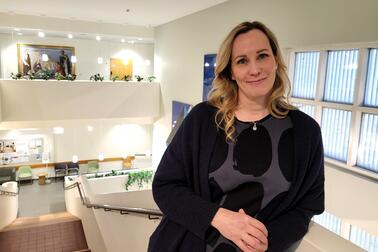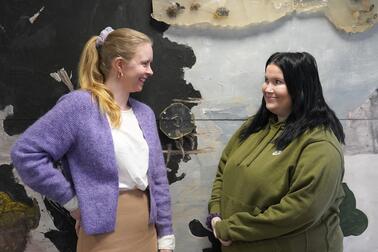Breastfeeding counselling is about tackling challenges together
When a family needs additional breastfeeding support, they can be referred to breastfeeding counselling. The counselling starts with a short interview, after which breastfeeding is practised together. Johanna often instructs clients to lean back and support their position with cushions.
"We try to make breastfeeding as easy as possible for the baby. Babies like to drink in the same way as adults do – in a symmetrical position with their head tilted back. But getting the baby into that position next to your breast is not that easy.”
The most rewarding thing about Johanna’s work is being able to provide quick relief. "The best part is being able to help families in difficult situations. This is rewarding work because the help is so immediate."
However, even with guidance, breastfeeding does not always go smoothly. In these cases, it is important to provide support to the family.
“Disappointments related to breastfeeding are a really big deal. When we start looking into why breastfeeding is not going well, it almost always turns out that the difficulties are caused by something beyond the family’s control. It's not worth blaming yourself over it,” Johanna reassures.




